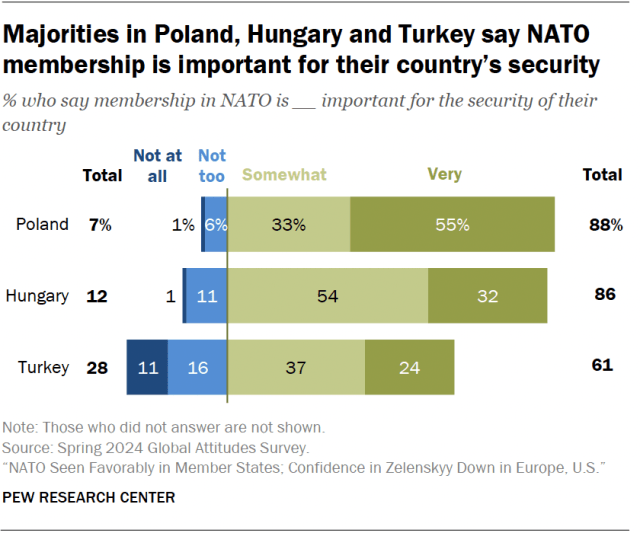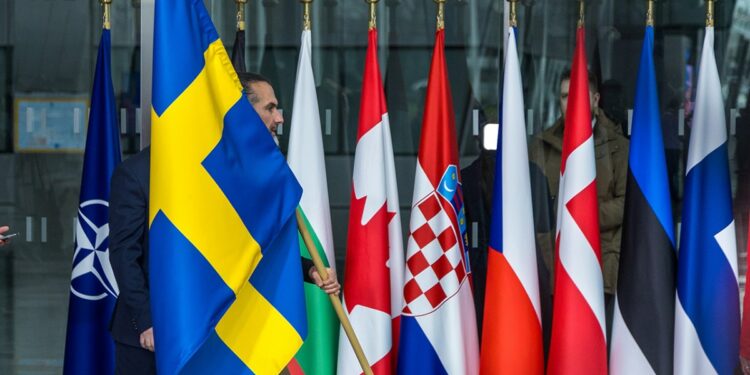There are few demographic differences in views of NATO across the 13 member states surveyed. But there are more extensive differences by political ideology in certain countries:
In Hungary, Poland and the U.S., people on the political left are much more likely than those on the right to have a positive view of NATO. The difference is largest in the U.S., where 79% of liberals, but only 41% of conservatives, have a favorable view.
Related: Americans’ opinions of NATO
In Greece, Spain and Sweden, the pattern is reversed: People on the ideological right are much more likely than those on the left to give NATO positive marks.
In Germany, one of the biggest divides is by support for right-wing populist party Alternative for Germany (AfD), which has several members with ties to Russia. Germans who have a favorable view of AfD are 32 points less likely than those with an unfavorable view of AfD to see NATO positively (39% vs. 71%).
One of the strongest patterns in support for NATO is in how people see the leadership of their own country. In nine of the 13 member countries surveyed, people who have a positive view of the governing party or parties in their nation are also more likely to have a favorable view of NATO. (Read Appendix B for more information on how we classify governing parties.)
This pattern holds regardless of the ideology of the governing party. In Greece, those who support New Democracy (ND), the center-right party of Prime Minister Kyriakos Mitsotakis, are 33 points more likely than those who support the Greek opposition to have positive view of NATO.
In the U.S., those who support the Democratic Party are 32 points more likely than Republican Party supporters to have a positive view of NATO. Differences of 20 points or more also appear in Canada, France, Germany, the Netherlands and Sweden.
Importance of NATO membership

In three countries, we asked people how important membership in NATO is for national security. Nearly nine-in-ten Poles (88%) say NATO membership is important for Poland’s security, with 55% saying it is very important. In Hungary, 86% say NATO membership is important, although fewer Hungarians than Poles say it is very important (32%). And 61% of people in Turkey see NATO membership as important; about a quarter (28%) say it is not important.
As with views of NATO more generally, Hungarians and Poles who place themselves on the ideological left are more likely than those on the right to consider NATO membership important to national security.
Source link : https://www.pewresearch.org/global/2024/07/02/views-of-nato-july-24/
Author :
Publish date : 2024-07-02 07:00:00
Copyright for syndicated content belongs to the linked Source.



